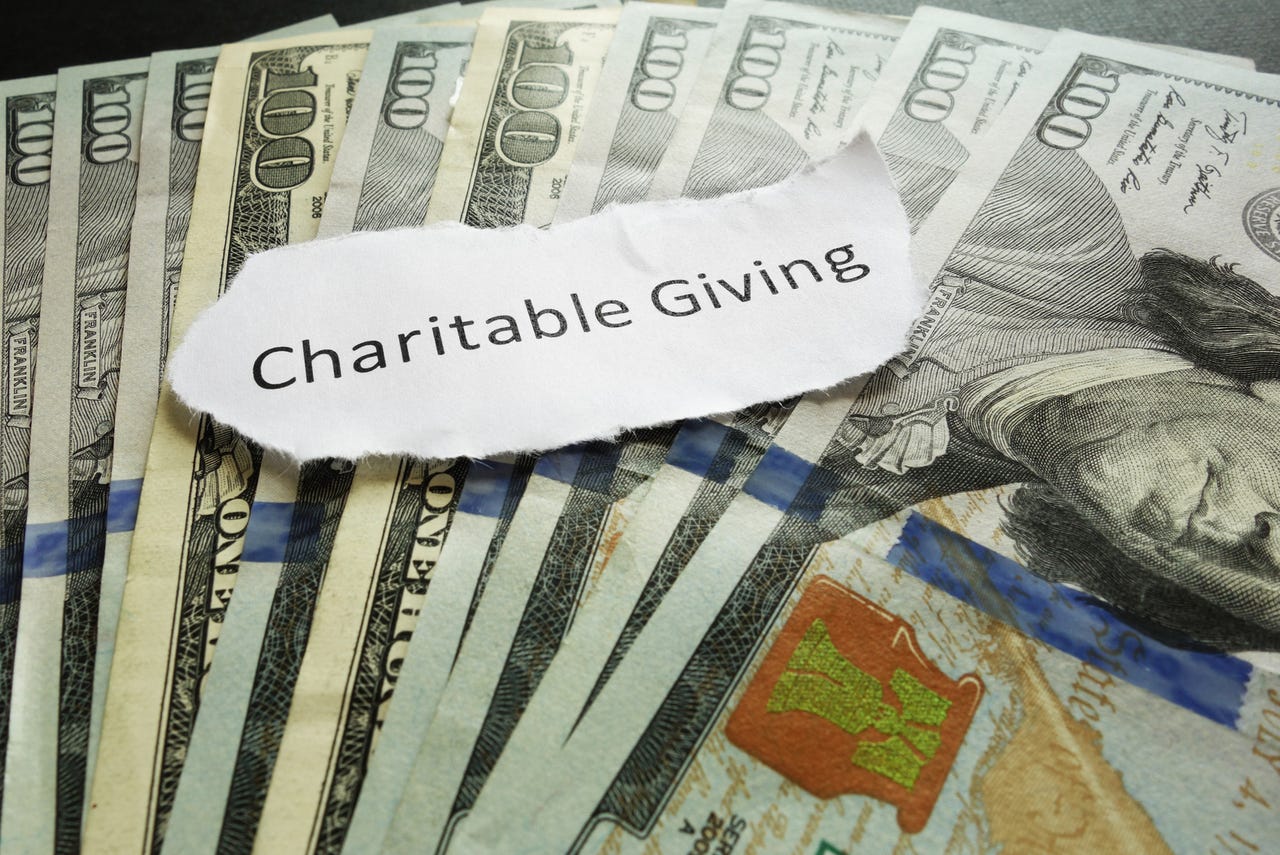'ZDNET Recommends': What exactly does it mean?
ZDNET's recommendations are based on many hours of testing, research, and comparison shopping. We gather data from the best available sources, including vendor and retailer listings as well as other relevant and independent reviews sites. And we pore over customer reviews to find out what matters to real people who already own and use the products and services we’re assessing.
When you click through from our site to a retailer and buy a product or service, we may earn affiliate commissions. This helps support our work, but does not affect what we cover or how, and it does not affect the price you pay. Neither ZDNET nor the author are compensated for these independent reviews. Indeed, we follow strict guidelines that ensure our editorial content is never influenced by advertisers.
ZDNET's editorial team writes on behalf of you, our reader. Our goal is to deliver the most accurate information and the most knowledgeable advice possible in order to help you make smarter buying decisions on tech gear and a wide array of products and services. Our editors thoroughly review and fact-check every article to ensure that our content meets the highest standards. If we have made an error or published misleading information, we will correct or clarify the article. If you see inaccuracies in our content, please report the mistake via this form.
How donating to charity affects your tax bill


Many personal finance columnists offer up the suggestion that donating to charity, especially towards the end of the calendar year, has its benefits.
This isn't just because of the spirit of the holiday season, but rather because there are tax benefits for many Americans when they donate to charity. For the approximately 15% of Americans who itemize their taxes, a charitable donation often means an additional deduction on their income taxes, meaning a charitable donation in December becomes a smaller tax bill in April.
How does all of this work? How can you tell if you're in the percentage of Americans who will see tax benefits from charitable donations? Let's start with the basics of income taxes.
Read also: ZDNet's income tax guide
You pay income taxes on your gross income
When you file your income taxes, perhaps the most important number that you use is your gross income. That's the total of how much you earned in a given year from everything that earned you money -- everything you earned from work, selling investments, unemployment benefits, child support and more.
From that amount, you're able to deduct some things. One of them is charitable donations. You can also deduct interest on your mortgage, some medical and dental expenses, and state and local income taxes, among many other things. One issue that many people will be dealing with since the pandemic pushed many employees to work from home is deducting home office expenses. Others who have leaned into small businesses and side gigs will want to understand small business home tax deductions.
Let's say Tammy makes $40,000 at her job and also earns $10,000 from a small side business she runs from home. Her gross income is $50,000. However, from that, she's able to deduct $15,000 in various things -- mortgage interest, small business home tax deductions and possibly student loan interest payments. This means, in the end, she only has to pay income tax on $35,000.
Many documents and personal finance experts will refer to adjusted gross income or modified adjusted gross income. That generally refers to your gross income minus the deductions you can claim. So, Tammy's adjusted gross income is $35,000.
Read also: ZDNet's guide to filling out taxes
Deductions reduce the amount of income taxed at the highest rate
The reason that so much emphasis is put on deductions is that, when you can add additional deductions to your taxes, it reduces the amount of income that you have that's taxed at the highest rate. A bit of explanation of tax brackets is in order here.
Remember Tammy? She's a single person, so her tax brackets look like this in 2021:
- 10%: Up to $9,875
- 12%: $9,876 to $40,125
- 22%: $40,126 to $85,525
What this means is that her first $9,875 in taxable income is taxed at a 10% rate, then all income from $9,876 to $40,125 is taxed at a 12% rate, then the rest of her income up to the $50,000 she earned is taxed at the 22% rate.
So, if she were paying taxes on the full $50,000, she would owe:
- 10% of $9,875, plus
- 12% of $30,250 (which is $40,125 minus $9,875), plus
- 22% of $9,875 (which is $50,000 minus $40,125)
That adds up to $6,790 in taxes.
Remember, most Americans don't directly face this bill each year. Instead, money is taken out of each paycheck to cover this. When you file your taxes, you're simply reporting your income and making sure that the money taken out of your check covers that amount.
Now, let's see how deductions change that story for Tammy. After deductions, she's only paying taxes on $35,000. She would owe:
- 10% of $9,875, plus
- 12% of $25,125 (which is $35,000 minus $9,875)
That adds up to only $4,002.50 in taxes.
Those $15,000 in deductions reduced her taxes by $2,787.50, keeping that money right in her pocket.
For most people, these kinds of deductions result in a tax refund check during tax season. That's because the amount taken out of their checks usually assumes that they're paying taxes with limited deductions, so there's plenty taken out of their paycheck. If you're able to deduct many things, then you will have overpaid your taxes by quite a bit, resulting in a big and potentially life-changing tax refund check.
In Tammy's situation, every single additional charitable donation would make her taxable income lower. It would reduce that amount taxed at 12% in the above example, so if she donated $100, she'd see a $12 lower income tax bill, meaning her donation really only cost her $88.
In other words, charitable donations when you already have many deductions reduce your taxes by a little (or by a lot, if you're in a high tax bracket).
Read also: ZDNet's freelancer tax guide
For most Americans, the standard deduction is a better option
So, what's the catch? Why don't people take advantage of this? The big reason is the standard deduction.
To make tax filing more efficient, the IRS offers all citizens a deal: you can just take a standard deduction rather than making a big list of all of your deductions. You simply choose the highest option for you -- either the standard deduction or the total of all the things you can actually deduct, like charity and mortgage interest. The real challenge in figuring out whether to itemize is simply finding evidence for all of your deductible expenses.
For a single person, that standard deduction is currently $12,550. That means that if you don't have any mortgage interest and haven't made a single charitable donation this year, you still get $12,550 chopped off your gross income before taxes are calculated. For married couples, that means $25,100 in deductions, and that's more than most people can find in their expenses.
In order for charitable giving to reduce your tax bill, you need to have deductions that add up to more than the standard deduction. As a result, only around 15% of Americans actually itemize their deductions [removed Tax Foundation link since it was already used in the intro]; the rest just take the standard deduction.
When will charitable giving reduce your tax bill?
If you are one of approximately 15% of Americans who won't take the standard deduction, additional charitable giving will likely reduce your tax bill. Who's in that group?
The biggest part of this group is homeowners with an active mortgage with a large balance, as interest on home mortgages is typically a large deduction for most people. For example, a $500,000 mortgage with 4% interest will accumulate $19,800 in interest during the first year of payments, which is itself enough to nearly overcome the standard deduction for married couples. In pricey housing markets, such large mortgages are typical.
Another group that often itemizes their taxes is extremely high-income earners, who often accumulate plenty of deductions even without the need for a mortgage because of the various uses of their wealth.
However, if you are an American with no more or little left on your mortgage and are earning anything close to a typical American income, you're almost assuredly taking the standard deduction, which means that additional charitable giving doesn't have an additional tax benefit for you.
If you have a big mortgage or a really high income, there are several things you can do to help ensure you get as many deductions as possible, starting with saving lots of receipts.
Too long, didn't read?
Charitable donations can help you reduce your tax bill because you may be able to deduct it from the amount of income you have to pay taxes on. However, the government offers a standard deduction that most people take instead. Thus, tax benefits from charitable giving usually only benefit people with a large home mortgage or a very high income. If you're not in those groups, it's unlikely that you will see tax benefits from additional charitable contributions.
Is there a charitable donation tax deduction limit?
The limit of how much you can deduct for cash donations is typically 60% of your adjusted gross income. However, a temporary suspension of limits by the IRS allows you to itemize and deduct 100% of your AGI in qualifying cash contributions for 2021. Filers can deduct $300 for single filers and $600 for married filing jointly without having to itemize the donations.
What charities can I donate to for a tax deduction?
Qualifying charities for tax-deductible donations include tax-exempt organizations and nonprofits such as churches, museums, foundations and the Red Cross. The IRS has a database available of qualifying organizations and charities.
Can I deduct non-cash donations?
Besides cash donations, you can deduct food items, clothes, cars, household goods and other property. Most goods can be deducted for the fair-market value of the items, as long as they're in good condition. As for vehicles, the deduction for donating a car depends on whether it was auctioned off or kept by the charity. Be sure to save receipts or written acknowledgements of the donations you made.